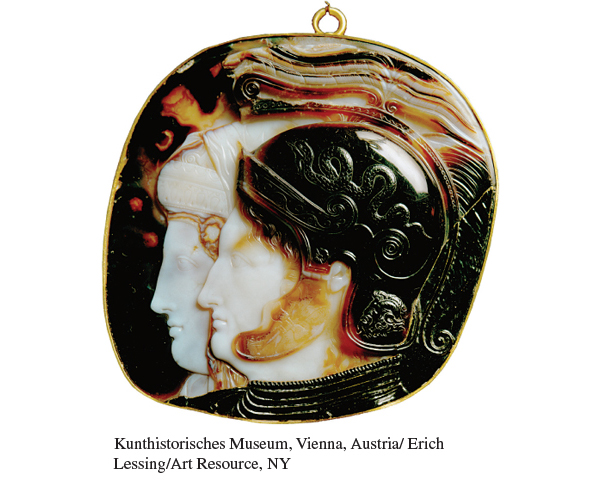A History of Western Society: Printed Page 97
A History of Western Society, Value Edition: Printed Page 90
A History of Western Society, Concise Edition: Printed Page 96
The Political Legacy
The main question at Alexander’s death was whether his vast empire could be held together. Although he fathered a successor, the child was not yet born when Alexander died, and was thus too young to assume the duties of kingship. (Later he and his mother, Roxana, were murdered by one of Alexander’s generals, who viewed him as a threat.) This meant that Alexander’s empire was a prize for the taking. Several of the chief Macedonian generals aspired to become sole ruler, which led to a civil war lasting for decades that tore Alexander’s empire apart. By the end of this conflict, the most successful generals had carved out their own smaller monarchies, although these continued to be threatened by internal splits and external attacks.
Alexander’s general Ptolemy (ca. 367–ca. 283 B.C.E.) was given authority over Egypt, and after fighting off rivals, established a kingdom and dynasty there, called the Ptolemaic (TAH-
Hellenistic rulers amassed an enormous amount of wealth from their large kingdoms, and royal patronage provided money for the production of literary works and the research and development that allowed discoveries in science and engineering. To encourage obedience, Hellenistic kings often created ruler cults that linked the king’s authority with that of the gods, or they adopted ruler cults that already existed, as Alexander did in Egypt. These deified kings were not considered gods as mighty as Zeus or Apollo, and the new ruler cults probably had little religious impact on the people being ruled. The kingdoms never won the deep emotional loyalty that Greeks had once felt for the polis, but the ruler cult was an easily understandable symbol of unity within the kingdom.

Hellenistic kingship was hereditary, which gave women who were members of royal families more power than any woman had in democracies such as Athens, where citizenship was limited to men. Wives and mothers of kings had influence over their husbands and sons, and a few women ruled in their own right when there was no male heir.
Greece itself changed politically during the Hellenistic period. To enhance their joint security, many poleis organized themselves into leagues of city-